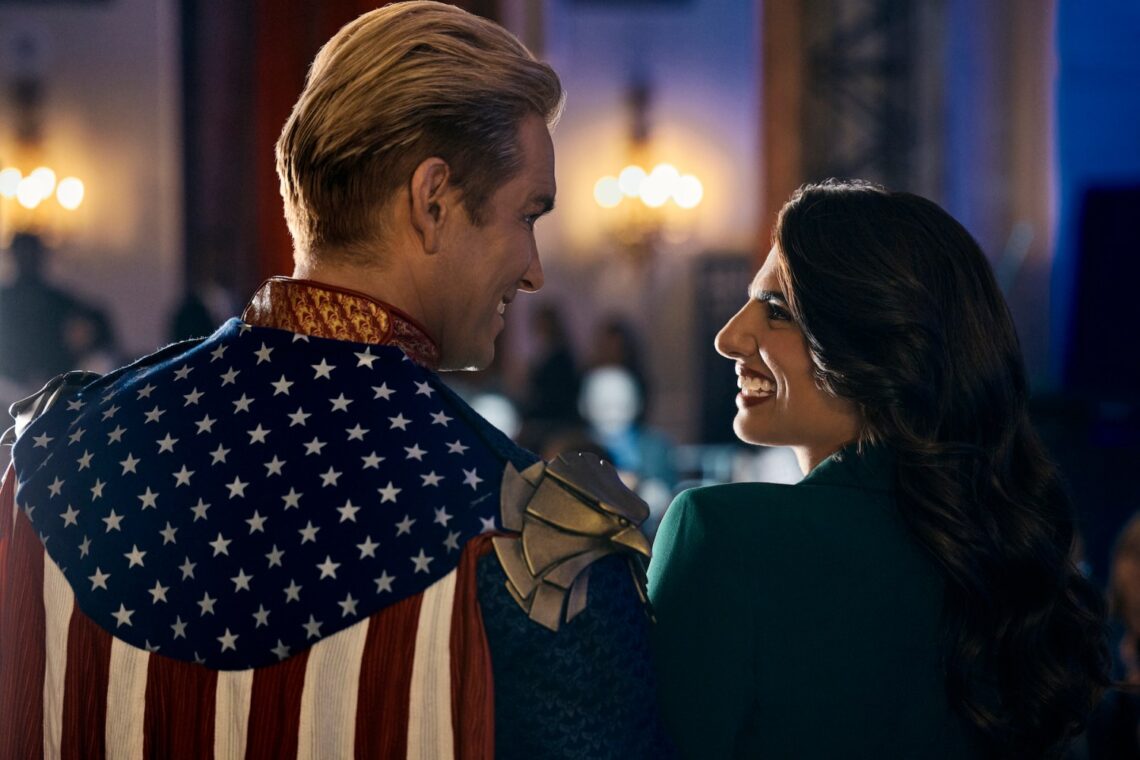The Boys Season 4 finale: A reflection on political satire and real-world parallels
The world of television and movies often mirrors the complexities of our reality, and “The Boys” is no exception. Amazon’s hit series, created by Eric Kripke and based on the graphic novel series by Garth Ennis and Darick Robertson, has consistently pushed the boundaries of political satire and social commentary. With the release of the Season 4 finale, the show has once again sparked conversations about the intersection of fiction and reality.
A timely warning and a controversial episode
Amazon recently released a statement and added a viewer discretion warning to the Season 4 finale of “The Boys.” The episode, originally titled “Assassination Run,” was renamed to “Season Four Finale” and now includes a cautionary note due to its depiction of political violence. This decision comes in the wake of a real-world assassination attempt on former U.S. president and current presidential candidate Donald Trump.
The statement from Prime Video reads: “The season finale of ‘The Boys’ contains scenes of fictional political violence, which some viewers may find disturbing, especially in light of the injuries and tragic loss of life sustained during the assassination attempt on former President Trump. ‘The Boys’ is a fictitious series that was filmed in 2023, and any scene or plotline similarities to these real-world events are coincidental and unintentional. Amazon, Sony Pictures Television, and the producers of ‘The Boys’ reject, in the strongest terms, real-world violence of any kind.”
Exploring the political landscape of “The Boys”
Since its debut in 2019, “The Boys” has delved into political storylines that often reflect current events. Season 4 is set in the aftermath of the election of presidential candidate Robert Singer (Jim Beaver) and his nefarious running mate, Victoria Neuman (Claudia Doumit). Neuman, an undercover super-powered individual, has been working for the superhero mega-corporation Vought and its supe supremacist leader, Homelander (Antony Starr).
The anti-supe squad, The Boys, led by Butcher (Karl Urban) and Hughie (Jack Quaid), have been on a mission to assassinate Neuman since the season premiere on June 13. The sixth episode of Season 4 features a chilling scene where Homelander, Neuman, and supe Sister Sage (Susan Heyward) rally some Federalist Society one-percenters to support their plan for total supe domination. This plan includes assassinating Singer following his inauguration, elevating Neuman to the presidency, and creating internment camps for their detractors.
A reflection on the show’s increasing political nature
In a June 18 interview with Variety, Eric Kripke discussed the show’s evolving political themes. “When we first pitched the show, it was before Trump was elected,” Kripke explained. “And the idea that a celebrity would actively want to turn themselves into a fascist autocrat was kind of a crazy idea. I mean, it still is. But it turned out to have happened? We sort of lucked into a show whose metaphor is really about the moment we’re living in, which is the cross-section of celebrity and authoritarianism.”
Kripke’s insights highlight how “The Boys” has become a timely and relevant commentary on the current political climate. The show’s portrayal of Homelander, a character who embodies the dangerous intersection of celebrity and authoritarianism, resonates with viewers who see parallels in the real world.
For those interested in exploring the series further, you can watch the trailer and find more information about “The Boys” here.
The power of fiction to reflect reality
“The Boys” serves as a powerful reminder of the role fiction can play in reflecting and critiquing reality. The show’s ability to tackle complex political themes and mirror current events has made it a standout in the world of television. As viewers, we are invited to engage with these narratives, reflect on their implications, and consider the ways in which art can influence our understanding of the world around us.
“The Boys” challenges us to confront uncomfortable truths and question the systems of power that shape our society. As we navigate the ever-changing landscape of politics and media, the show remains a poignant and thought-provoking exploration of the human condition.

 Italian
Italian







